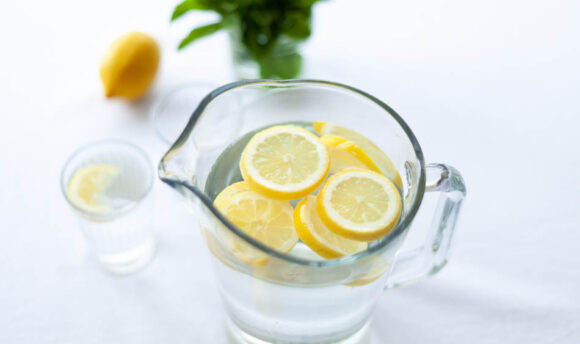Does Alcohol Make You Gain Weight? Unlock the Truth
The hidden impact of alcohol on your weight loss journey

Whether you’ve recently noticed an increase in belly fat or have started to see the numbers on the scale creeping up, it may be time to address your alcohol consumption.
While typically laden with sugar and calories, alcoholic beverages can contribute to a higher calorie intake. However, drinking excessively may also impact self-control and stimulate the appetite, both of which can lead to eating more and moving less.
So, can we really blame the weight gain on alcohol, or are there other factors that should be considered too? We explore the relationship between alcohol and weight gain, the risks behind drinking, and discuss whether or not you’ll need to pack in the pints to maintain not only your figure but your health too.
Does Alcohol Make You Gain Weight? Debunking the Myths
When it comes to alcohol and weight gain, the link between the two isn’t as straightforward as you may initially think. While it is possible to pile on the pounds, whether you do or not depends on a range of individual factors.
For example, some of the key factors that may impact this include:
- Gender
- Age
- Genetics
- Existing health conditions, such as diabetes
- Physical activity levels
- Diet
Drinking alcohol alters your brain’s decision-making processes as well as your body’s physiological responses, which can be a double-edged sword when you are trying to lose weight.
How much body weight you’ll gain when drinking alcohol also depends on your beverages of choice, as well as how much and how often you choose to drink them.
Why Does Alcohol Make You Gain Weight?
One of the main reasons that alcohol leads to weight gain is because it is a source of “empty calories.” Foods and beverages with empty calories have little to no nutritional value. Alcoholic drinks contain a large amount of kilocalories but do not provide nutritional value.
Consuming too many empty calories can therefore increase your chances of overeating, as you won’t feel satisfied from the calories already eaten. Here are four reasons why alcohol my have an impact on your weight loss progress.
#1 Stimulating appetite
Drinking alcohol increases your appetite and cravings for high-calorie, fattening, and sugary foods. Even if your body doesn’t need more food, it triggers hunger receptors in your brain.
#2 Impairing judgment
Having a drink or two lowers your inhibitions, and you have a harder time making healthy food choices. In this situation, it’s more likely that you’ll give into cravings and will be less likely to stick to your diet plan.
#3 Disrupting metabolism
While the body stores essential macronutrients such as carbohydrates, proteins, and fats, it prioritizes getting rid of the empty calories in alcohol, which can be toxic when consumed in excess. In turn, this impacts other important procedures within the body, such as nutrient absorption and the processing of fat.
Research shows that this can cause your body to begin storing fat around your midsection, which is often known as “beer belly.”
Beer belly does tend to be more prevalent in men than women. However, it can be harmful to anyone drinking alcohol excessively, as this also might lead to an increase in visceral fat, which wraps itself around vital organs such as the liver.
#4 Affecting sleep quality
It is also possible for alcohol to disrupt your sleep patterns, leading to poor quality sleep. Getting enough sleep is crucial for weight loss, as it regulates hunger hormones and allows your body to recover.
How many calories there are in alcohol?
Most alcoholic drinks are filled with more calories than you think, which can push you over your recommended daily calorie intake and cause weight gain. You may therefore be shocked to learn how many are in one serving of some of your favorite beverages:
- Beer – 153 kcal
- Red wine – 125 kcal
- White wine – 128 kcal
- Gin – 97 kcal
- Vodka – 97 kcal
- Whiskey – 97 kcal
- Mojito – 143 kcal
- Margarita – 168 kcal
- Daiquiri – 137 kcal
- Pina colada – 526 kcal
Based on brand, serving size, and preparation method, the listed caloric content of various alcoholic beverages could vary significantly.
How Much Alcohol Makes You Gain Weight?
In general, research suggests that while light-to-moderate alcohol consumption isn’t harmful, excessive drinking will lead to weight gain. Heavy drinking is defined as more than 4 drinks per day for men, or 14 per week, and 3 drinks for women, or 7 each week.
However, it’s difficult to define a specific point when you begin putting on weight due to your alcohol consumption. Each person has a different weight, height, body composition, and body mass index (BMI), meaning that every individual will require a unique number of calories to keep their body performing its vital functions, from breathing and moving to growing and thinking.
This also means that different amounts of calories are needed to generate a caloric surplus, where the excess energy consumed through food and alcohol becomes stored as fat.
The type of alcohol you’re drinking also has a huge impact. For example, while beers and sugary cocktails tend to contain more empty calories, spirits are lighter and lower in calories, especially when combined with low-calorie mixers like slimline tonic.
Alcohol’s Effect on Appetite and Food Choices
As we’ve mentioned, alcohol is one of the most significant sources of empty calories, meaning that it has little to no effect on your hunger satiety. This is because alcohol consumption may trigger nerve cells in the brain, which are usually only activated by starvation or intense hunger.
Drinking alcohol can also cause your inhibitions to become lower, meaning you’ll have less restraint when it comes to dietary choices. Furthermore, it may cause your blood sugar levels to dip slightly, particularly for those with diabetes.
So, while drunk, you’re more likely to seek out that high-carb greasy burger and fries you’ve been craving all week instead of the low-calorie salad you had planned.
Heavy drinking has also been shown to affect your body’s ability to regulate its secretion of cortisol, a stress hormone, meaning that those who consume alcohol in excess are likely to have higher cortisol levels.
Along with potentially increasing abdominal weight gain, increased stress often causes people to “comfort eat” foods they enjoy, including sugary snacks and greasy take-outs. If heavy drinking occurs too often, you may therefore find yourself developing unhealthy eating habits.
Over time, this continual increase in calorie intake could cause you to keep piling on the pounds.
Can I Drink Alcohol And Still Lose Weight?
If the amount of alcohol you drink puts you in a caloric deficit, where your body burns more calories than consumed, you will technically still lose weight.
However, heavy alcohol consumption is a serious risk factor for illnesses beyond weight gain, including increased triglycerides and high blood pressure. Both of these factors elevate your chances of stroke, heart and liver disease, some cancers, and premature death.
So, regardless of whether you’re trying to shift stubborn fat or build muscle, you should closely monitor your alcohol consumption and ensure that you’re not exceeding the recommended limits. If you do choose to enjoy alcohol safely, men are advised to drink 2 beverages or less on days when alcohol is consumed, and women 1 or less.
One of the best ways of ensuring that you can lose weight fast is by using a weight loss app, which helps you monitor your calorie intake, recommends healthy recipes, and provides motivation to keep you on track.
A Word From Our RD


Alcohol is high in both sugar and calories, containing 7 calories per gram, which is almost as much as 1 gram of fat. Plus, you’ll often find additional calories in mixer drinks such as tonic water and carbonated beverages, which can easily push you over your daily calorie limit.
Over time, excessive alcohol use will not only cause you to put on weight, but can also lead to health issues and chronic diseases like inflammation, digestive problems, increased heart rate, high blood pressure, stroke, cancer, and liver disease.
To minimize these effects and help with weight loss, you should try to eat a diet filled with lots of appetite-satisfying, healthy foods. Making small changes to your diet is also key for lowering calorie consumption, such as swapping your normal sugary latte for a healthier morning drink.
I’d also recommend building a regular workout routine, along with drinking plenty of water and getting a good amount of sleep each night. Tools such as weight loss supplements can be useful as part of a balanced lifestyle too, but shouldn’t be solely relied on for minimizing weight gain.
FAQs
Beer is high in calories, and so drinking it excessively can cause you to gain weight. Consuming alcoholic beverages can also increase your appetite and prevent your body from burning fat. This can lead to an accumulation of fat around your midsection, which is often referred to as “beer belly.”
As it contains the antioxidant compound resveratrol, drinking small amounts of red wine may offer heart health benefits. However, like any type of high-calorie alcoholic beverage, consuming too much wine can push your alcohol intake over the recommended daily calorie limit. Over time, this can lead to weight gain.
While drinking 2 beers per night is unlikely to cause weight gain, it depends on how many calories you are consuming through your general food and alcohol intake. For instance, if you’re already eating a high-calorie diet, adding 2 beers to this may cause weight gain when consumed regularly.
Depending on your individual genetics and how much alcohol you’ve consumed, alcohol generally shuts down your fat-burning metabolism for 12 to 36 hours.
Alcohol can stimulate nerve cells that signal intense hunger to your body, leading to increased food cravings. It may also elevate cortisol levels, causing you to eat more through stress, and lower your inhibitions, meaning you’re less likely to eat mindfully or make healthy food choices.
Conclusion
Overall, it’s clear that your alcohol intake can cause weight gain. This can occur due to a variety of factors, from excessive consumption of calorie-laden beverages to increasing your cravings for unhealthy foods.
While refraining from drinking alcohol is the healthiest choice, it can be consumed in moderation. If you’re hoping to minimize weight gain and maintain your general health, try to choose lower-calorie beverages and mixers and stick within the recommended limits.
Remember that alcohol consumption is just one small part of leading a balanced lifestyle – you should also eat a balanced diet, exercise regularly, keep your stress levels low, and get plenty of sleep each night.

















































 Select your language:
Select your language: 







